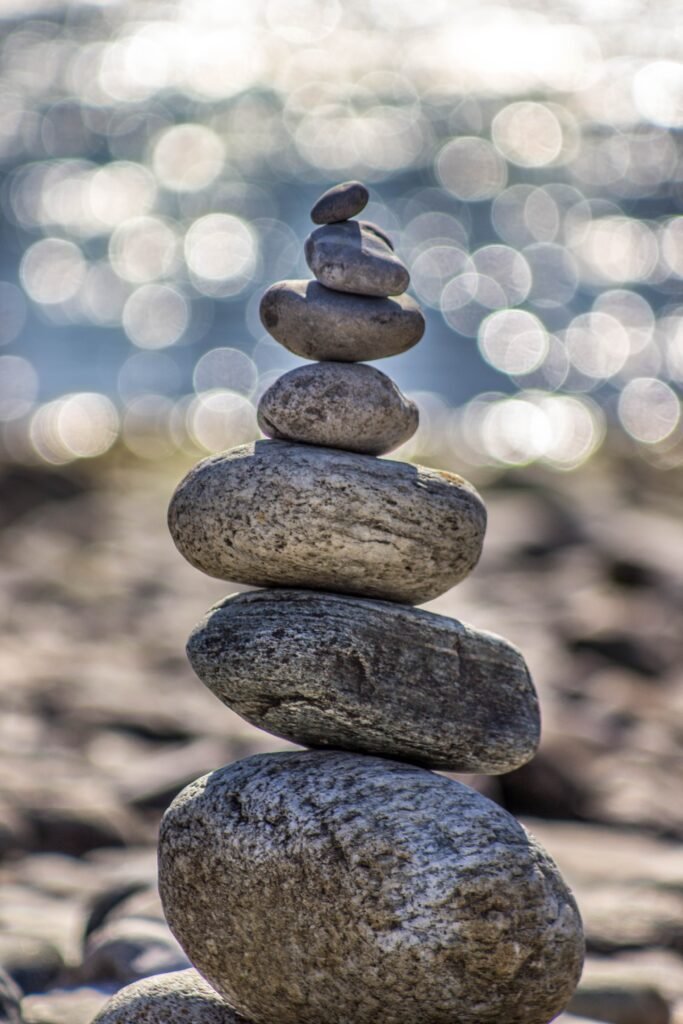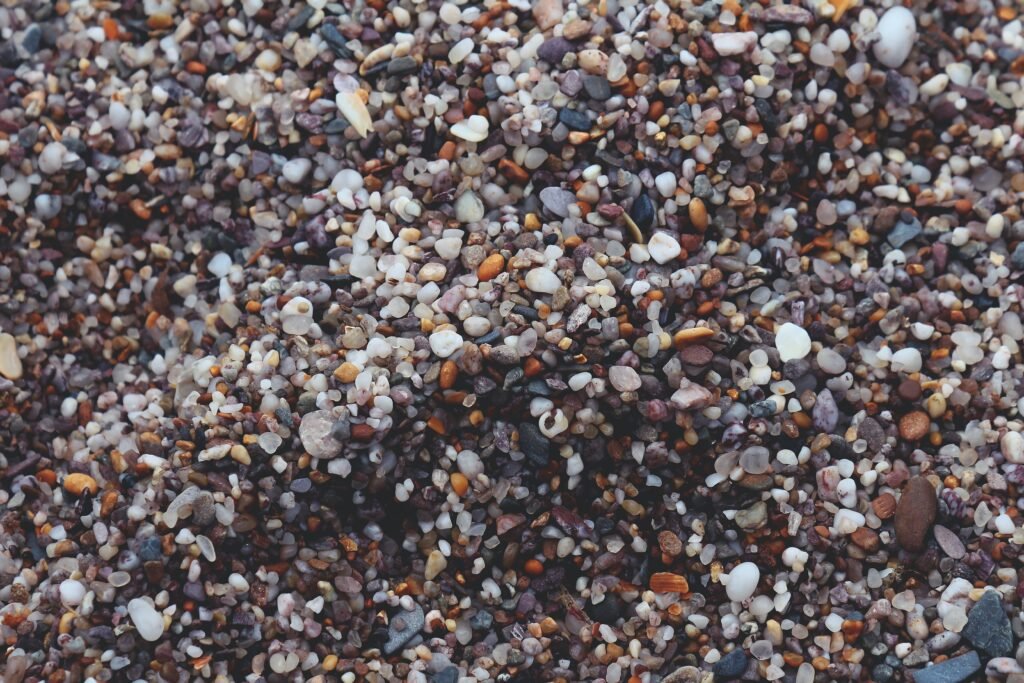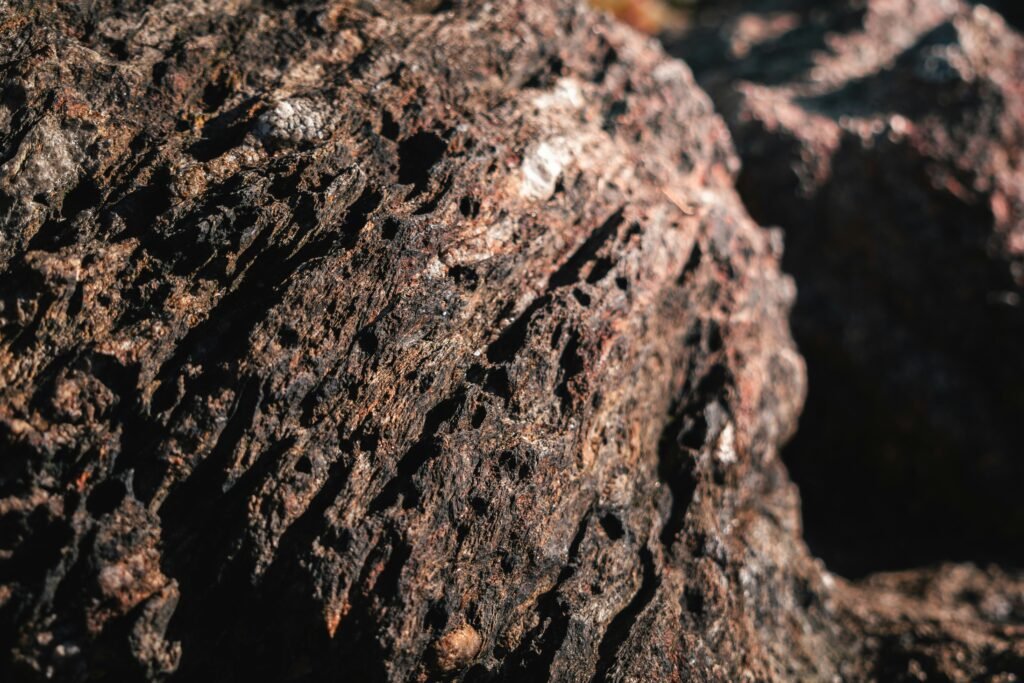So you’ve been plagued by the excruciating pain of kidney stones, and you’re desperate to find a way to prevent them from ever coming back. You’ve tried all the traditional methods – drinking plenty of water, cutting back on salt and caffeine, but nothing seems to work. Well, what if I told you that reducing stress and anxiety could actually be the key to preventing those pesky stones? It may sound unconventional, but recent studies have shown a clear link between high stress levels and an increased risk of developing kidney stones. In this article, we’ll explore the science behind this surprising connection and discuss practical ways you can reduce stress in your life to keep those stones at bay.
Understanding Kidney Stones
Kidney stones, also known as renal calculi, are solid mineral and salt deposits that form in the kidneys. They come in different types, including calcium stones, uric acid stones, and struvite stones. Understanding the different types of kidney stones is crucial in implementing effective preventive measures. Calcium stones, the most common type, form when calcium combines with other substances like oxalate or phosphate. Uric acid stones develop when the urine becomes too acidic, causing uric acid to crystallize. Struvite stones are typically a result of bacterial infections in the urinary tract.
Causes of Kidney Stones
Various factors contribute to the formation of kidney stones. Dehydration is a prominent cause as it leads to concentrated urine, making it easier for minerals and salts to crystallize. Additionally, a diet high in sodium, protein, and oxalate can increase the risk of kidney stone formation. Certain medical conditions such as hypercalciuria, hyperparathyroidism, and urinary tract infections can also predispose individuals to kidney stones. Furthermore, a family history of kidney stones and certain medications like diuretics may play a role in their development.
Symptoms of Kidney Stones
If you’ve ever experienced the excruciating pain associated with kidney stones, you understand just how important it is to recognize the symptoms. The most common symptom is severe pain in the lower back, abdomen, or sides. This pain, often referred to as renal colic, can be accompanied by blood in the urine, frequent urination, a persistent urge to urinate, and cloudy or foul-smelling urine. Other potential symptoms include nausea, vomiting, fever, and chills. It is crucial to seek medical attention if you suspect you may have kidney stones.
The Link Between Stress and Kidney Stones
Stress is a common factor in many health issues, and kidney stones are no exception. Chronic stress can disrupt the body’s balance and contribute to the formation of kidney stones. Stress can indirectly affect kidney stone formation by influencing behaviors that increase the risk, such as poor dietary choices and inadequate hydration. Additionally, stress can lead to changes in urine composition and decrease urine volume, both of which can promote the crystallization of minerals and salts.
The Impact of Stress on Kidney Stone Formation
When you’re stressed, your body releases stress hormones like cortisol, which can lead to increased calcium levels in the urine. Higher levels of calcium in the urine can facilitate the formation of calcium stones. Stress can also activate the sympathetic nervous system, which can affect the flow of urine and increase the concentration of substances that contribute to stone formation. Moreover, stress can impair the body’s immune system, making it more susceptible to urinary tract infections, which can lead to the development of struvite stones.
The Relationship Between Anxiety and Kidney Stones
Anxiety, a common manifestation of stress, can have a direct impact on kidney stone formation. Studies have shown that individuals with anxiety disorders are more likely to experience urinary issues, including an increased risk of kidney stones. Anxiety can disrupt normal bladder function, leading to incomplete emptying of the bladder. This can result in urine retention, creating an environment conducive to stone formation. Additionally, anxiety has been associated with changes in urinary pH, which can contribute to the development of uric acid stones.

This image is property of images.unsplash.com.
Lifestyle Changes for Kidney Stone Prevention
Prevention is key when it comes to kidney stones. Implementing certain lifestyle changes can significantly reduce the risk of stone formation. Dietary modifications are crucial, especially for individuals prone to calcium stones. Limiting sodium and oxalate intake, while increasing calcium-rich foods, can help prevent calcium stones. It is also important to stay hydrated by drinking an adequate amount of water each day to maintain urine dilution. Regular exercise and physical activity can also aid in preventing kidney stones by promoting overall urinary tract health.
Dietary Modifications
A well-balanced diet is essential for kidney stone prevention. When it comes to calcium stones, it is recommended to consume an adequate amount of calcium, preferably from food sources rather than supplements. Foods rich in calcium include dairy products, leafy greens, and fortified plant-based milk alternatives. Limiting sodium intake is equally important as high levels of sodium can increase calcium excretion in urine. It is also advisable to reduce the consumption of oxalate-rich foods such as spinach, rhubarb, and chocolate.
Importance of Hydration
Hydration plays a crucial role in kidney stone prevention. Drinking an ample amount of water helps dilute the urine, reducing the concentration of minerals and salts that contribute to stone formation. It is generally recommended to drink at least eight glasses of water per day, but individual needs may vary depending on factors such as climate and physical activity level. Monitoring urine color can serve as a helpful indicator of hydration status – clear or pale yellow urine suggests adequate hydration, while dark yellow urine indicates a need for increased fluid intake.
Exercise and Physical Activity
Regular exercise and physical activity are not only beneficial for maintaining overall health but can also aid in kidney stone prevention. Engaging in physical activity improves blood circulation and reduces the risk of conditions such as obesity and diabetes, which are associated with an increased risk of kidney stones. Exercise also promotes urinary tract health by preventing stagnation of urine, facilitating the elimination of waste products, and reducing the likelihood of developing urinary tract infections. Aim for at least 150 minutes of moderate-intensity exercise per week for optimal results.
Stress Management Techniques
Finding effective ways to manage stress is essential for kidney stone prevention. By incorporating stress management techniques into your daily routine, you can reduce the impact of stress on your body and lower the risk of stone formation. Deep breathing exercises are a simple yet powerful tool that can help activate the body’s relaxation response, alleviating stress. By focusing on your breath and inhaling deeply through your nose and exhaling through your mouth, you can promote relaxation and reduce stress.
Meditation and Mindfulness
Meditation and mindfulness practices have been used for centuries to promote relaxation and reduce stress. Taking a few moments each day to sit quietly and focus on the present moment can help calm the mind and reduce anxiety. Mindfulness involves paying attention to your thoughts, feelings, and bodily sensations without judgment. Engaging in guided meditation sessions or using smartphone apps that offer meditation and mindfulness exercises can be beneficial in managing stress and preventing kidney stones.

This image is property of images.unsplash.com.
Progressive Muscle Relaxation
Progressive muscle relaxation (PMR) is a technique that involves consciously tensing and then relaxing specific muscle groups to promote physical and mental relaxation. By systematically tensing and releasing different muscle groups, you can increase awareness of tension and learn to relax muscles throughout your body. PMR can help reduce stress and anxiety, leading to a more relaxed state of mind and body. It is often best practiced in a quiet environment, free from distractions, and can be particularly helpful before bedtime to promote better sleep.
Cognitive Behavioral Therapy (CBT)
Cognitive behavioral therapy (CBT) is a therapeutic approach that focuses on identifying and changing negative thought patterns and behaviors. CBT techniques can be highly effective in managing stress and anxiety, both of which contribute to kidney stone formation. By working with a trained therapist, you can learn to reframe negative thoughts, challenge irrational beliefs, and develop healthier coping mechanisms. CBT can equip you with the tools to effectively manage stress and minimize its impact on your overall well-being.
Understanding CBT
CBT is based on the premise that our thoughts, feelings, and behaviors are interconnected and influence one another. It emphasizes that by targeting and modifying our thoughts and behaviors, we can improve our emotional well-being. CBT techniques often involve identifying and challenging negative thoughts (“cognitive restructuring”), learning relaxation techniques, and implementing behavioral changes. CBT is a structured and goal-oriented therapy that can empower individuals to take an active role in managing their stress levels and preventing kidney stones.
Applying CBT Techniques for Stress and Anxiety
When it comes to kidney stone prevention, applying CBT techniques for stress and anxiety management can be highly beneficial. By recognizing and reframing negative thought patterns related to stress, you can reduce the emotional and physiological response to stressors. Additionally, implementing healthy coping mechanisms and stress reduction strategies learned through CBT can help prevent the increase in urinary calcium levels and urine concentration that contribute to kidney stone formation. Working with a CBT therapist can provide guidance and support in applying these techniques effectively.
Support Systems and Social Connections
Creating and maintaining strong support systems and social connections can play a significant role in stress management and kidney stone prevention. Having emotional support from friends, family, or support groups can help alleviate stress and provide a sense of belonging and understanding. Nurturing relationships and fostering social connections can help reduce feelings of isolation and loneliness, promoting overall happiness and well-being. Engaging in activities with loved ones and participating in hobbies and interests that bring you joy can also help alleviate stress and prevent the negative impact it can have on your health.
Importance of Emotional Support
Having emotional support from others can be a valuable asset in managing stress and anxiety. Knowing that you have someone to confide in and share your experiences with can help provide a sense of relief and reassurance. Whether it’s through open communication with a trusted friend or family member or seeking professional support from a therapist or counselor, having a support system in place can make a significant difference in reducing stress levels and maintaining a healthy mindset. Expressing your feelings and concerns to others can lighten the burden and promote emotional well-being.

This image is property of images.unsplash.com.
Nurturing Friendships and Relationships
Building and nurturing positive friendships and relationships is essential for overall well-being and stress reduction. Engaging in activities with friends and loved ones that bring joy and laughter can provide a much-needed reprieve from the stresses of daily life. Sharing moments of happiness and connecting on a deeper level with others can foster a sense of belonging and promote emotional well-being. Making time for social interactions and cultivating meaningful relationships can help combat feelings of stress and anxiety, consequently reducing the risk of kidney stone formation.
Herbal Remedies and Supplements
In addition to lifestyle changes and stress management techniques, certain herbal remedies and supplements may offer further support for kidney stone prevention. Natural remedies for stress and anxiety, such as chamomile tea, lavender, and valerian root, have been used for centuries to promote relaxation and calmness. These remedies can be incorporated into your daily routine to help manage stress levels. Additionally, herbal supplements like cranberry extract and aloe vera may have properties that support urinary tract health and reduce the risk of urinary tract infections, which can contribute to kidney stone formation.
Natural Remedies for Stress and Anxiety
When it comes to managing stress, natural remedies can be a great option. Chamomile tea is often used for its calming properties and can be consumed throughout the day to promote relaxation. Lavender, whether in essential oil form or as a scented candle, has a soothing aroma that can help alleviate stress and anxiety. Valerian root, available as a supplement or herbal tea, has been used for centuries to promote sleep and relaxation. Incorporating these natural remedies into your routine can aid in stress reduction and ultimately contribute to kidney stone prevention.
Herbal Supplements for Kidney Stone Prevention
Certain herbal supplements have shown potential in supporting kidney stone prevention. Cranberry extract has long been associated with urinary tract health and may help reduce the risk of urinary tract infections, which can contribute to stone formation. Aloe vera, known for its soothing properties, has been suggested to possess antioxidant and anti-inflammatory effects, which can help maintain a healthy urinary tract. Before incorporating any herbal supplements into your routine, it is essential to consult with a healthcare professional to ensure their safety and effectiveness for your individual needs.
Prescription Medications
In some cases, prescription medications may be necessary to manage stress and anxiety, ultimately reducing the risk of kidney stone formation. Anxiolytics, such as benzodiazepines and selective serotonin reuptake inhibitors (SSRIs), are commonly prescribed to help alleviate symptoms of anxiety. These medications work by regulating the levels of neurotransmitters in the brain that are involved in anxiety responses. Antidepressant medications, including SSRIs and tricyclic antidepressants (TCAs), may also be prescribed to individuals struggling with chronic stress and anxiety.
Anxiolytics and Antidepressants
Anxiolytics and antidepressants can be helpful in managing stress and anxiety, but they should always be prescribed and monitored by a healthcare professional. Anxiolytics like benzodiazepines can provide short-term relief from acute anxiety symptoms. However, they can be habit-forming and may cause side effects such as drowsiness and impaired coordination. SSRIs, a type of antidepressant, work by increasing the levels of serotonin in the brain, which can help regulate mood and reduce symptoms of anxiety and depression. TCAs, another type of antidepressant, may also be prescribed in certain cases.
Benefits and Risks of Medications
Prescription medications for stress and anxiety come with benefits and potential risks. The benefits include reducing the intensity and frequency of anxiety symptoms, helping individuals regain control over their daily lives, and improving overall well-being. However, it is crucial to consider the potential risks and side effects associated with these medications. Common side effects may include drowsiness, dizziness, upset stomach, and changes in appetite or weight. It is important to work closely with a healthcare professional to determine the most appropriate medication and dosage based on your individual needs and medical history.
The Role of Medical Intervention
While lifestyle changes, stress management techniques, and preventive measures are crucial in kidney stone prevention, there may be situations where medical intervention is necessary. Non-invasive treatment options such as lithotripsy, a procedure that uses shock waves to break up kidney stones, may be recommended to individuals with larger stones or stones causing significant pain. If non-invasive treatments are not successful, surgical procedures such as ureteroscopy or percutaneous nephrolithotomy may be necessary to remove or break up the stones. Following medical intervention, proper follow-up care and preventive measures are essential to minimize the likelihood of future stone formation.
Lithotripsy: Non-invasive Treatment Option
Lithotripsy is a non-invasive treatment option that can be effective in breaking up kidney stones into smaller pieces, making them easier to pass through the urinary tract. During the procedure, shock waves are generated outside the body using a lithotripter machine and targeted at the location of the kidney stones. These shock waves break the stones into smaller fragments, which can then be eliminated through urine. Lithotripsy is generally considered safe and effective, but it may not be suitable for everyone. Your healthcare provider will evaluate your specific situation and recommend the most appropriate treatment option.
Surgical Procedures for Kidney Stones
In cases where non-invasive treatments are not effective or feasible, surgical procedures may be necessary to remove or break up kidney stones. Ureteroscopy involves the use of a thin tube with a camera to visualize and remove stones located in the ureter or kidney. Percutaneous nephrolithotomy, on the other hand, is a surgical procedure that involves making a small incision in the back to access and remove larger kidney stones. These procedures are typically performed under anesthesia and may require a hospital stay. Your healthcare provider will discuss the best surgical approach based on the size, location, and composition of the stones.
Follow-up Care and Preventive Measures
After undergoing medical intervention for kidney stones, proper follow-up care and preventive measures are essential to reduce the risk of recurrence. Your healthcare provider will likely recommend regular imaging tests to monitor the status of your kidneys and ensure that there are no new stone formations. Additionally, ongoing lifestyle modifications, stress management techniques, and dietary changes will be crucial in maintaining a stone-free urinary tract. It is essential to stay hydrated, follow a balanced diet, and manage stress effectively to prevent the formation of new kidney stones and maintain optimal kidney health.
Maintaining a Stress-Free Lifestyle
Maintaining a stress-free lifestyle is important not only for kidney stone prevention but also for overall well-being. Healthy sleep habits play a vital role in stress management, as lack of sleep can exacerbate stress and anxiety levels. Establish a consistent sleep schedule, create a calming bedtime routine, and ensure your sleep environment is conducive to quality rest. Engaging in self-care practices, such as engaging in hobbies, spending time outdoors, and practicing relaxation techniques, can help alleviate stress. Long-term stress management strategies, including regular exercise, seeking support, and prioritizing self-care, can contribute to a healthier, happier lifestyle.

